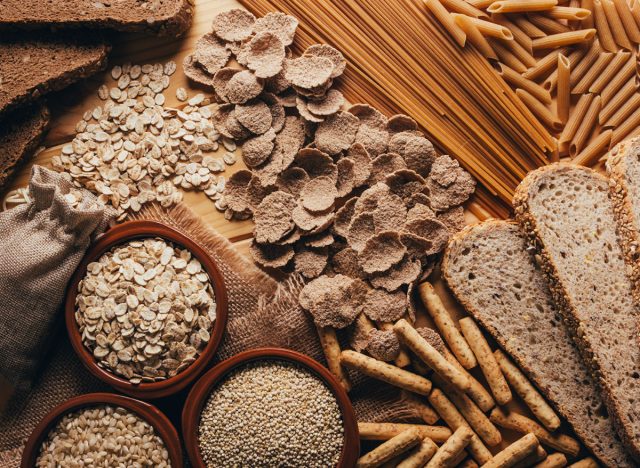Ukraine is one of the world’s largest exporters of cereals, vegetable oils, and sunflower seed oil. Amid the war there now, market experts are concerned that there will be global disruptions to the food supply.
Since a week before Russia invaded Ukraine, prices of wheat surged 55%. Ports in Ukraine that send wheat and other food staples worldwide to be made into bread, noodles, and animal feed are shut down as millions flee or stay to fight in the war.
If the war is prolonged, countries that rely on affordable wheat exports from Ukraine could face shortages starting in July, International Grains Council director Arnaud Petit told The Associated Press.


Related: 6 Things You’ll See at Costco This Year
Russia and Ukraine combine for nearly a third of the world’s wheat and barley exports. Ukraine also is a major supplier of corn and the global leader in sunflower oil, used in food processing. The war could reduce food supplies, which could create food insecurity and throw more people into poverty in places like Lebanon and Egypt, where diets are dominated by bread.
Stores across the United States, including Kroger, have already begun pulling Russian-made vodka from their shelves due to the war. According to The Wall Street Journal, at least 11 states including Oregon, North Carolina, and West Virginia have banned the sale of Russian-made alcohol from liquor stores as of March 1.
“As America’s grocer, we’re taking action to show our support and solidarity with Ukraine,” Kroger tweeted from the official Kroger News Twitter account. “Over the weekend, we removed Russian-produced vodka from our shelves.”
In Europe, officials are preparing for potential shortages of products from Ukraine. Increased prices for livestock feed, which is another big Ukranian export, could mean that price hikes for meat and dairy products could occur.
Ukrainian farmers have been forced to leave their fields behind. According to The Associated Press, “there are worries Russia, another agricultural powerhouse, could have its grain exports upended by Western sanctions.”

